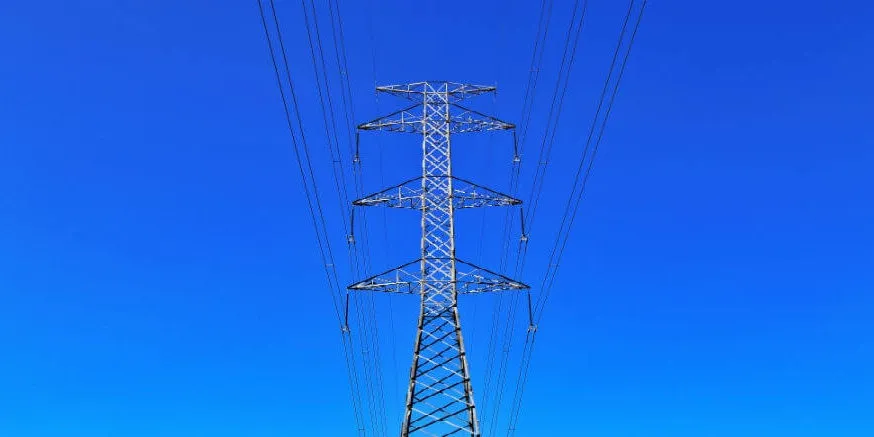If you’ve driven through the rural regions of Texas, you’re probably familiar with the iconic oil rigs scattered throughout the landscape. Houston’s corporate world is dominated by the oil and energy industry. In fact, Houston’s Energy Corridor has been home to some industry heavyweights since the 1970’s, including Shell Oil Company, Citgo, BP America and ConocoPhillips—a few of the nearly two dozen Fortune 500 companies that currently have a presence in Houston.
For decades, the energy industry saw relatively few major changes. But recently, we’ve seen some significant advancements in this lucrative business sector, from the improved connectivity of the Industrial Internet of Things (IoT) to the arrival of the smartphone, tablet and mobile apps. Energy industry mobile apps are proving especially transformative, providing tools that allow you to streamline oil and gas explorations, monitor infrastructure, track vehicle fleets and engage consumers. Today, the only real limit is your imagination.
Mobile Apps for Oil and Gas Exploration Ventures
Companies are perpetually seeking new deposits of oil and natural gas, and a proprietary app can be developed to include tools that aid exploration crews on the ground. Mobile apps can tap into the GPS capabilities of a smartphone or tablet, so it’s possible to pinpoint your location on the ground and generate map overlays that indicate terrain, the location of previously-discovered deposits and even U.S. Geological Survey (USGS) data on what lies beneath the Earth’s surface. Energy companies also use ground penetrating radar, geotechnical drilling methods and other tools to search for gas and oil deposits. The data from these tools can then be fed into an app interface and used to create an up-to-date exploration map. This app could both track ongoing ventures and identify new locations for exploration.
Developers could even work with the energy company’s scientists to create a sophisticated algorithm that evaluates a particular geographic region and pinpoints locations where you’re more likely to find deposits.
Mobile Apps to Monitor Infrastructure
Energy companies tend to have vast infrastructures spread across large areas, including oil rigs, pipelines, refineries, storage facilities and more. Monitoring and maintaining this infrastructure is now far easier and less costly thanks to the IoT, which allows these connected monitors to beam out vital data.
If you have IoT connected monitoring equipment, you can benefit from a mobile app that collects all these communications, compiling the data into a single, easy-to-use interface. The app can generate an alert on a supervisor’s mobile device when a critical issue is detected. Then, the supervisor could use the app to identify the nearest technician, who would be contacted and sent to repair the problem.
This monitoring equipment doesn’t just alert you when a problem arises; it also helps you avoid problems in the first place by generating the data needed for preventative maintenance. For example, if a system predictably sees a decrease in productivity prior to going offline due to a worn-out part, then you can configure your app to alert you as soon as the initial drop-off in efficiency is detected. That allows you to dispatch a technician to address the problem before it happens. This proactive approach to maintenance results in significant cost savings for energy companies, particularly when you consider the tremendous scale of these operations.
Consumer-Facing Mobile Apps for the Energy Sector
While the most transformative apps likely fall in the realm of the B2B or enterprise app, many opportunities could allow energy companies to engage consumers in new and exciting ways. This, in turn, can improve sales and increase customer loyalty.
One example is the energy usage tracker app, designed to help consumers monitor their energy usage, whether it’s while driving, at home or at work. With the modern technology found in the typical smartphone, it’s possible for a mobile app to detect when a person is traveling inside a vehicle. Your app could track in-vehicle movement and calculate gas consumption based on the vehicle type, speed and other factors.
This type of app is especially useful for small and medium-sized businesses since their energy consumption occurs on a much larger scale, although the average Joe would also find advantages. These apps can also be configured to offer tips for maximizing efficiency and decreasing cost.
The energy sector can even leverage app technology that has been pioneered by other industries. For instance, an energy company could empower and engage consumers using a simple account management app that lets customers view their account details, make payments and perform basic management tasks.
Or, following in the high-tech footsteps of shipping companies, energy companies can now leverage mobile apps to track and manage entire vehicle fleets. Plus, this sector can take advantage of asset and stock tracking apps—apps first developed by e-commerce companies—as they dispatch and track deliveries of oil and natural gas.
Modern technology holds the power to transform the energy industry, and that’s one area where mobile apps shine. These rapidly evolving applications offer new capabilities that save both time and money. This can take the form of making explorations more efficient, connecting with consumers in a dynamic way or leveraging IoT technology to manage fleets and infrastructure.
At 7T, we understand the energy industry like few others. Based in Dallas, our mobile app development company maintains regional offices in Houston and Austin. As native Texans, we have a firm understanding of what companies need for energy industry mobile apps. We have worked on a wide array of development projects for this sector and others, including the healthcare industry and the financial sector. So if you’re ready to start creating a new and innovative app, contact the experts at 7T.










